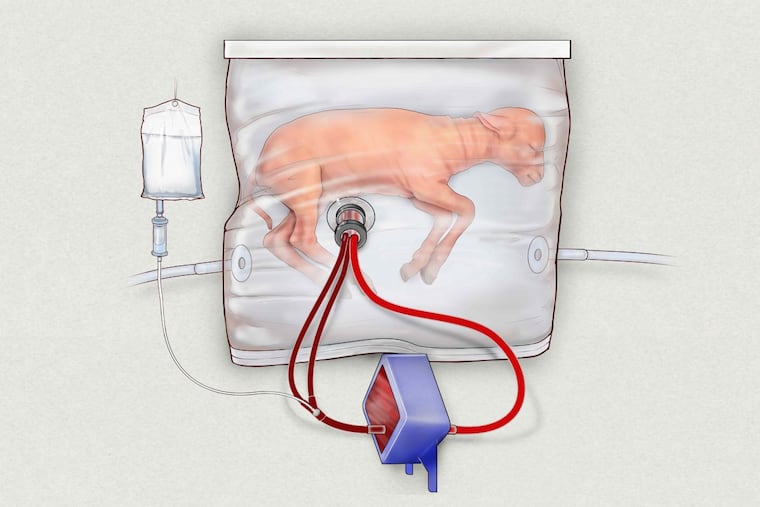'Artificial womb' scientist at CHOP wins Philly Geek award
The Children's Hospital of Philadelphia surgeon called it "the most awesome award ever."

It's been ages since the word geek was rehabbed into a positive term, now widely used to praise innovators in technical and non-technical fields alike.
So why not the developer of an artificial womb?
Alan W. Flake, a fetal surgeon at Children's Hospital of Philadelphia, snagged Scientist of the Year at the 2017 Philly Geek Awards on Saturday.
He and colleagues have delivered extremely premature lambs and kept them alive for weeks inside fluid-filled "BioBags" — by all appearances, successfully mimicking the environment of a mother's womb.
When the team's success was announced in April, Flake said he hoped a version of the invention could be used on extremely premature human babies within three to five years, with the goal of improving their odds of survival without disability.
Most extreme preemies — those born less than 26 weeks into pregnancy — do not survive. Those that do often suffer from grave chronic health problems.
The project began more than five years ago, when CHOP's Emily A. Partridge proposed it to Flake, convinced that there had to be a better way to treat extremely premature infants. Colleague Marcus G. Davey, a fetal physiologist, then built the system from scratch, using some parts from unconventional sources such as Home Depot.
Flake seemed delighted with the honor, according to the site Geekadelphia, which co-hosted the ceremony.
In the version used on the fetal lambs, the BioBag system recirculated sterile fluid that contained electrolytes for nutrition. The lambs received oxygen through their umbilical cords, supplied by an external oxygenator.
The Philly Geek Awards were founded in 2011. The other two nominees for 2017 Scientist of the Year were geneticist Elaine Zackai, also of Children's Hospital, and Anna Dhody, a curator at the Mütter Museum who led an effort to study 18th-century bones found at an Old City construction site.
In 2013, Flake was part of another history-making effort at Children's Hospital. A team of surgeons successfully removed a dangerous heart tumor from a human fetus during pregnancy, then sewed up the mother's uterus so the pregnancy could resume its course.